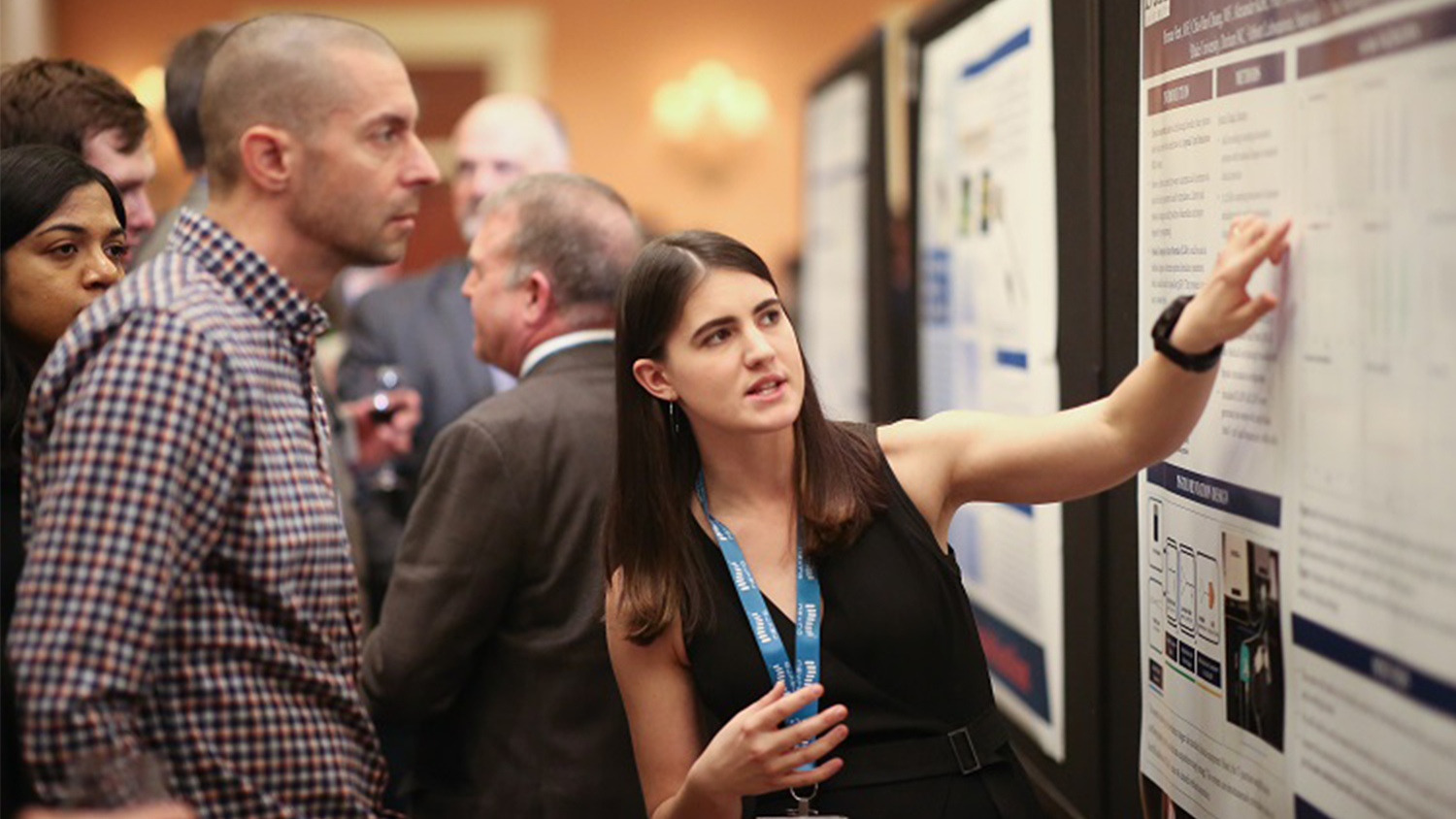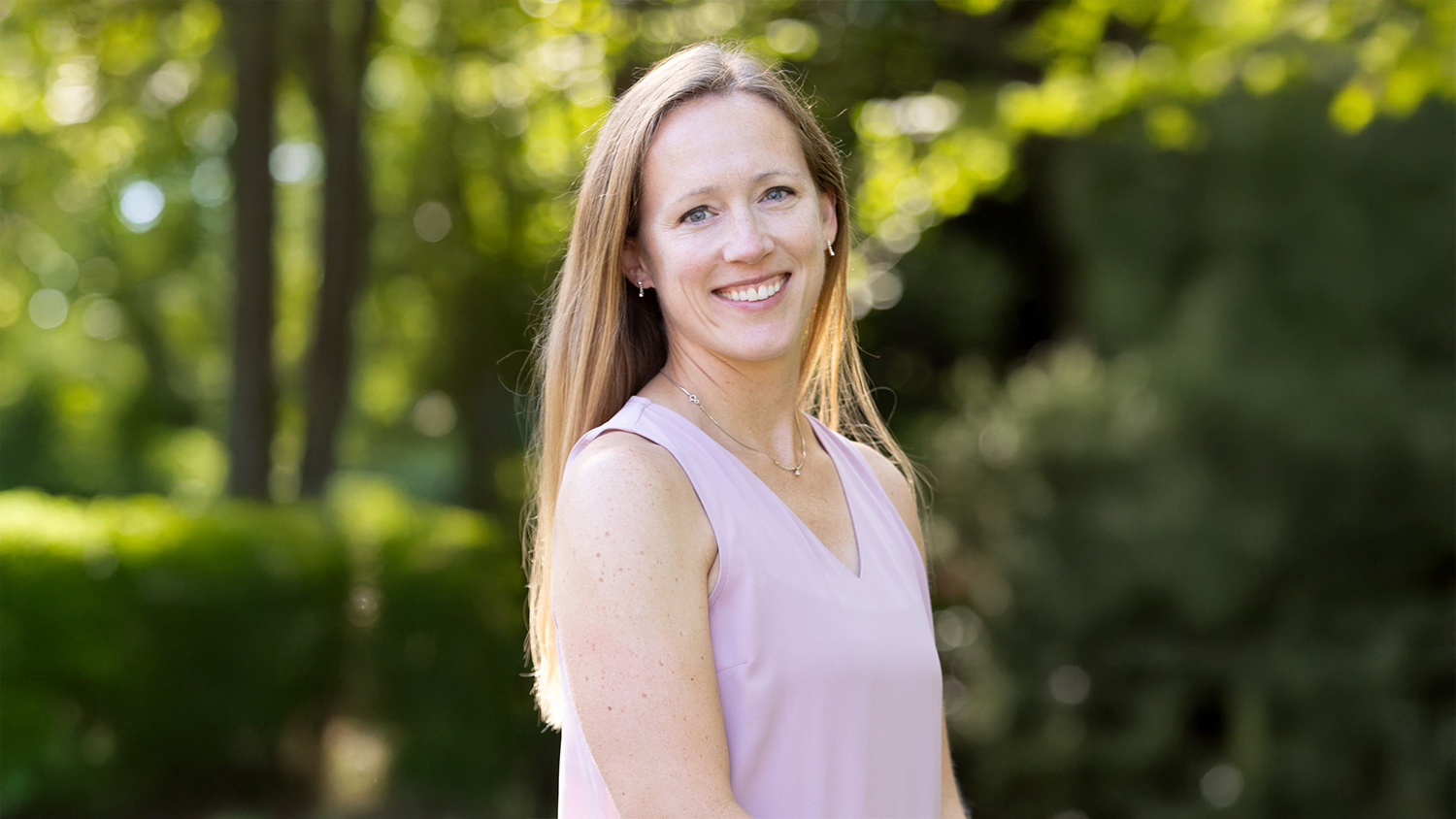From Undergrad Researcher to Mentor: How Brinnae Brent ’16 Made Research Her Career
The Office of Undergraduate Research recently caught up with Brinnae Brent '16, who is now working towards a Ph.D. and works in the Big Ideas Lab at Duke University.

By Marco Valencia
The Office of Undergraduate Research was able to speak with a former undergraduate researcher who is now on the path to obtaining her Ph.D. Brinnae Brent is a 2016 graduate of NC State’s College of Engineering, receiving her degree in Biomedical Engineering. Brent is now a Ph.D. candidate at Duke University, where she works in the Big Ideas Lab, building off of her research she began during her undergraduate years. Brent also teaches engineering coursework through the Duke NAE Program, working with kindergarten-aged children to senior citizens to highlight the importance of science and research.
What is the Big Ideas Lab, and what kind of research do you do?
Primarily I work with chronic disease detection and management. My thesis is in discovering digital biomarkers, which are ways to get health outcomes through digital data such as an Apple Watch or Fitbit and combine that data with machine learning methodologies to better understand health outcomes for a variety of chronic conditions. I generally focus on the field of glycemic health, and within that field I focus on pre-diabetes.
Pre-diabetes is a really critical field of research right now in America because one in three people has pre-diabetes, yet over 90 percent of those people do not know they have the condition. These numbers display a large diagnostic gap. There are many reasons for this, but one is that the diagnosis is not scalable at a large population level. Thus, I am trying to research the effectiveness of using non-invasive detection methods such as the Apple Watch and Fitbit, then once the condition is detected, give methods on how to manage the condition, such as checking your glucose. This has been the core work of my scientific research as a Ph.D. candidate.
I also have several other projects that I am involved in, including establishing frameworks for digital biomarker development. I co-founded and now serve as the lead software developer for the Digital Biomarker Discovery Pipeline, which is an open-source software system. The system is designed to provide algorithms and spaces for researchers who want to get into the field of digital biomarkers.
Do you mentor any researchers? What does the task of mentoring entail?
I have mentored other researchers. Emily Ray is one person I mentor, whom I met through substitute teaching at NCSSM (North Carolina School of Science and Mathematics). While subbing for an engineering course, I met Emily and asked her to come volunteer in the lab before she started her first year of college. She actually came back a year later for an official internship with the lab, leading to her graduate school studies. She is now applying to Ph.D. programs, which I’ve been helping her with and doing daily check ins. It is wild to see the process come into a full circle where I was once that student applying for graduate level programs, and now I help others with that process.
In terms of expectations when it comes to mentoring, I try to be more hands off in my approach and try to let the researchers explore their options for themselves. When I was in undergraduate research my mentor used this approach, and I really appreciated that because it gave me the opportunity to really understand what and how I was doing research in the context of the lab. I give my researchers a plan and let them go about their own work, meeting back with them formally a few times a week. However, with the presence of COVID-19 and the move to virtual meetings, I have had to be a lot more structured with those who perform research under me. The meetings are scheduled and acts as a space where they can ask me anything related to the research and if they need my help to any degree. It was an interesting process, but I have moved to the 100 percent virtual aspect and haven’t even met some of my researchers face to face.
What influenced you to go into this field of research? Did undergraduate research provide a building block for what you study now?
During my undergraduate research at NC State, I worked in Dr. Bozkurt’s lab in the Department of Electrical and Computer Engineering where he created wearables and new wearable technology. I took part in his research and worked on tools such as a wrist worn asthma monitor, a “sleepy band” which is an EEG headband for sleep monitoring, and many other projects that gave me a head start in the field of data science. Undergraduate research solidified my decision to go into the data science field and provided a nice segue into the current research I perform.
What are some of the biggest lessons you learned throughout undergraduate and graduate research?
One of the biggest things I have learned during my undergraduate research and into my graduate level research has been in scientific communication — learning to communicate in the scientific community and share your research to a vast array of people from a very technical scientist all the way to an elderly person who may not know all the specific vocabulary terms. Thus, I have had to learn how to applicably communicate my research within communities who do not study science.
The Office of Undergraduate Research at NC State helped me out with this process as I attended SNCURCS (State of North Carolina Undergraduate Research and Creativity Symposium) two years in a row, and then went on to attend the National Conference on Undergraduate Research (NCUR) two years in a row as well. The experience was phenomenal because I was able to observe other researchers’ posters and take away important information that helped me out in the long run. I also met so many researchers with whom I connected with and was able to share my own research to such a diverse group of people. Communicating scientific research is something I definitely worked on in undergraduate research and have continued to work on throughout my graduate research as well.
How was your experience with the National Conference on Undergraduate Research?
My experience with going to the NCUR was excellent. I went consecutively two years in a row, and my first year we went to Eastern Washington University in Spokane, Washington, somewhere I had never been before. It was so interesting to see an entirely new place and be exposed to a brand new research community that was incredible. To talk to so many different people doing all kinds of different research from performing arts to the hard sciences and everything in between was really a unique experience. Going to the national conference, in addition to SNCURCS, helped me with my presentation skills and made me realize I wanted to pursue research in graduate school. At the conference, I was able to talk to a bunch of potential professors for my Ph.D. from all over the country and the networking I received was very beneficial in propelling me in the next step of my career.
After you receive your Ph.D., what are your future plans?
I am defending my thesis in a few months, so I have started to weigh my options. One of my options is looking into post-doctoral opportunities. In addition, a lot of Silicon Valley employers are recruiting me, so they are trying to jump into the pool of options as well. I do not know what my next moves are, but I do know I want to be doing a lot of research and a lot of learning. In addition, I want to be in a position where I can mentor others because that is something extremely important to me. All the mentors I have had throughout my undergraduate and graduate years of research are the reason I’m in the position I’m in today. Thus, it is really important that I am giving back to the research community by helping others as well.
Do you have any tips for those who are starting their journey within undergraduate research?
I would say to be as bold and courageous as possible. A lot of undergraduate researchers seem to struggle with the “imposter syndrome,” and don’t feel as if they belong in research, or just don’t think their research is valued which is definitely not the case. Amazing research is done in the undergraduate field and builds the foundation for other research to be done. Do what you enjoy and feel passionate about, and be bold in the process! Go do amazing, life-changing things!
I would also like to point undergraduate students in the direction of the Office of Undergraduate Research because they were so instrumental in where I am today, and I definitely wouldn’t be here without their support!
The Office of Undergraduate Research thanks Brinnae for her time and wishes the best with her future endeavors!
- Categories:


